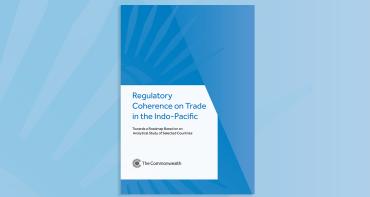New report notes the number of least developed countries (LDCs) has doubled, not fallen since the United Nations (UN) introduced the categorisation in 1971.

Only a handful of countries are likely to graduate out of the ‘least developed’ category despite a 10-year, internationally-agreed plan to halve the number by 2020. Lack of “21st century solutions”, weak international cooperation and failure to address the trade challenges of the world’s poorest countries are reasons why they continue to lag behind, states a joint report released today.
A group of seven development partners (LDC IV Monitor), including the Commonwealth, conducted a mid-term review of the Istanbul Programme of Action (2011–2020) - the global 10-year strategy designed to boost economic growth in the poorest countries. Their findings reveal that with existing support mechanisms only ten countries are likely to move up from being least developed by 2020, rather than the 24 envisaged in the strategy.
The report notes the number of least developed countries (LDCs) has doubled, not fallen since the United Nations (UN) introduced the categorisation in 1971. It warns that unless the international community steps up efforts to improve the trade prospects of LDCs, they are unlikely to reach development targets.
“Trade is a crucial mechanism to sustain economic growth and must play a central role in alleviating poverty. Our analysis shows that while the IPoA provides important guidelines to address the developmental challenges, we need more targeted policies and actions focused on the improvement of productive capacities to boost export performance and diversification,” said Dr Mohammad Razzaque, the Commonwealth Secretariat’s Head of International Trade Policy.
Every ten years since 1981 the UN has convened a special conference to consider global action programmes and to support development in LDCs, currently a group numbering 48 countries. This grouping is deemed the most disadvantaged in the development process and faces the greatest risk of failing to overcome poverty. The Istanbul Programme of Action (IPoA) is a global policy agenda for LDCs, including targets to help them progress from this ranking.
The LDC IV Monitor was established to provide independent and objective monitoring of the programme. In 2014, the group produced their first report to track progress. The group’s recent mid-term review focuses on four themes: structural transformation, export diversification, prospects for countries’ graduation from LDC classification and implications of the 2030 Agenda for Sustainable Development.
The report finds that many objectives set out in the IPoA are unlikely to be achieved. “The LDCs face a set of interconnected global challenges – economic, technological, demographic, environmental, security and governance-wise – with the potential to seriously undermine their prospects of achieving the SDGs, as well as IPoA goals,” it states.
However, there are some reasons for optimism, the report notes, which include rising agricultural yields, reduction in infant mortality rates and growing capital formation. But if LDCs are to advance, more targeted policies and actions are needed particularly in the areas of capacity building and economic diversification says the report.
The report will be launched at a global, high-level event in Antalya, Turkey on 29 May. The event will be attended by political figures, international organisations, the private sector and civil society to review progress on the IPoA. Trade experts from the Commonwealth will present their findings.
To receive a copy of the report and/or arrange an interview with a Commonwealth trade expert please contact Hannah Murphy (details as above).



